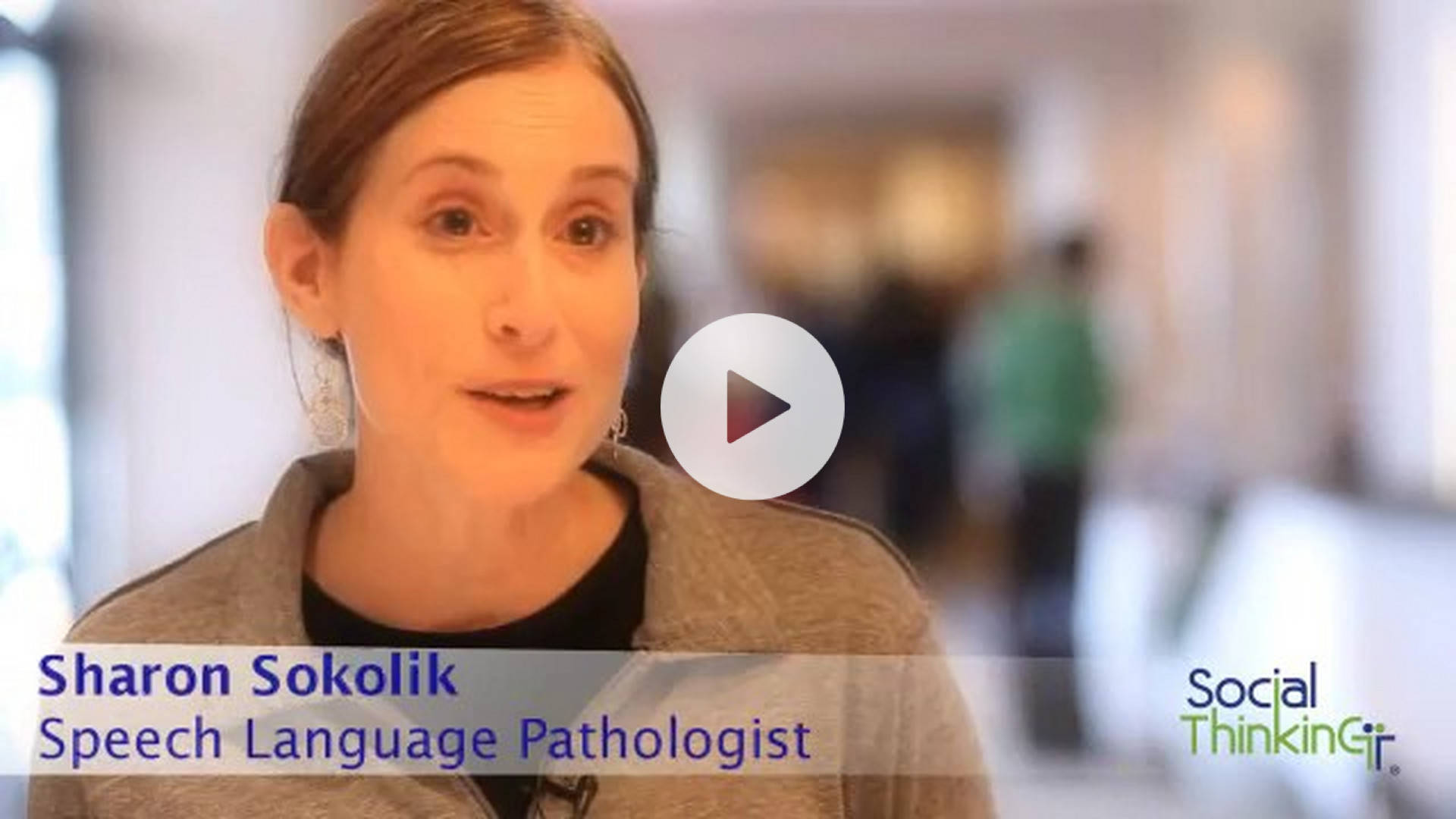Social Thinking IS Academic Thinking: Making Connections Using the ILAUGH Model
Discover an array of concepts and strategies that bolster social learning and help students meet socially based educational standards. Explore the ILAUGH Model of Social Cognition to help break down and make sense of the social world. Uncover how differences and/or challenges in social communication, executive functioning, and perspective taking impact written expression, reading comprehension of literature, organizational skills, and working in a group—and learn strategies to support students, clients, and patients in each of the above! Rounding out the day: learn tips for student-driven goal writing and data keeping.

- Description
- What You Will Learn
- Schedule
- Who Should Attend
This course is designed to teach professionals and parents the social learning frameworks, concepts, and strategies needed to support students, clients, and patients toward deeper social processing and social competencies. Conference attendees will gain new insights into the power of their own social emotional learning systems as they explore their social motivations and how they process and respond to social information. We will dissect hidden social rules, contemplate how social expectations change with age, and discuss how social problem solving is at the heart of social competencies and affects how students interpret and respond to social-academic information and assignments. You’ll learn a variety of strategies from the Social Thinking Methodology—including approaches for advocating and asking for help, helping students avoid “the blurt,” and cope with boring moments.
Much of the day will focus on the ILAUGH Model of Social Cognition (or social thinking). ILAUGH is an acronym for Initiating Communication, Listening with Eyes and Brain, Abstract and Inferential Thinking, Understanding Perspective, Getting the Big Picture, and Humor & Human Relatedness. The ILAUGH model demonstrates how social interpretation is linked to academic tasks, such as written expression, conversational language, reading comprehension, and organizational skills. As we wrap up the day, we will explore how to teach at the roots—and not through the leaves—of the Social Thinking–Social Learning Tree. We will then discuss how to take an individual’s self-determined social goals and embed them into rubrics. The information in this course is applicable to all students as it pertains to social and academic learning.
Upcoming Conferences
We are currently not offering this course at an in-person conference, however we have over 20 online training courses taught by thought leaders in social competencies, self-regulation, executive functioning, and more.
- Explain why teaching “think with your eyes” is a more comprehensive approach than simply teaching “good eye contact.”
- Explain why a person with social learning differences, disabilities, or challenges may struggle with comprehending literature.
- Use the Social Learning Tree to explain what it means to plan and implement treatment in the “roots and not in the leaves.”
- Describe how social interpretation is critical for producing sophisticated social responses.
- Explain how the G in the ILAUGH model (i.e., gestalt processing or "getting the big picture"), relates to written expression and organizational skills.
- Describe a strategy to help students avoid blurting.
Upcoming Conferences
We are currently not offering this course at an in-person conference, however we have over 20 online training courses taught by thought leaders in social competencies, self-regulation, executive functioning, and more.
This agenda may change without notice.
| 7:30-8:30 | Use social competencies to problem solve how to sign in, find a seat, and enjoy a cup of coffee or tea while getting to know fellow attendees.. |
| 8:30-10:15 | Introduce concepts from the Social Thinking Methodology and discuss the social-academic connection
|
| 10:15-10:35 | Break |
| 10:35-12:00 | Introduce the ILAUGH model’s first two concepts:
|
| 12:00-1:00 | Lunch provided by Social Thinking |
| 1:00-2:15 | ILAUGH concepts (cont.):
|
| 2:15-2:35 | Break |
| 2:35-3:40 |
Complete the ILAUGH concepts:
|
Upcoming Conferences
We are currently not offering this course at an in-person conference, however we have over 20 online training courses taught by thought leaders in social competencies, self-regulation, executive functioning, and more.
Interventionists supporting ages 5 - young adult. At our conferences we share our latest frameworks, lessons, and strategies for teaching social thinking with a wide variety of interventionists, including: speech-language pathologists, special and general education teachers, social workers, counselors, clinical and school psychologists, occupational therapists, behavior specialists, and school administrators to name a few. It’s also used by family members and caregivers across settings.
Upcoming Conferences
We are currently not offering this course at an in-person conference, however we have over 20 online training courses taught by thought leaders in social competencies, self-regulation, executive functioning, and more.









